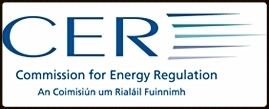The woman was sitting in a doorway at Fingal County Council.
A WOMAN HAS made a statement to gardaí after she was left bloodied at an anti-water charges protest today.
The woman was one of four protesters who had lodged themselves in a revolving door at Fingal County Council this afternoon.
A video posted on the Dublin Says No Facebook page shows gardaí attempting to remove the protesters. There is some resistance and the sound of glass shattering, though the video does not show how it happened.
A second video shows the woman being escorted from the offices by security staff and gardaí, her face and clothes bloodied.
Anti Austerity Alliance councillor Eugene Coppinger tonight
told TheJournal.ie that around 25 protesters were
now at Swords Garda Station and a number of protesters
were giving statements to the gardaí. He said that the woman
had been treated by ambulance staff on the scene, but had lost
a lot of blood. He said that people had a right to protest.
“This was a peaceful protest. People have a right to breach
security if they want.”
Gardaí say that they were called to attend a protest today while
removing a protesters from the doorway, a woman received a
“minor injury”, being treated on scene.
The matter is being investigated by gardaí.
Frequently targeted local authority has spent €33,000 on security over past two years
Fianna Fáil councillor Darragh Butler said Monday’s council meeting went ahead as planned, with the protest having no effect on the evening’s business.
He said he counted about 15 to 20 protesters outside the county hall and about eight gardaí.
He said the costs of providing security at meetings was an “awful waste” of council money. “I have no problem with peaceful protest but clearly when you jump over or go around three different barriers, that’s not peaceful protest,” he said.
“The council didn’t bring in the water charges, the Government did.”








